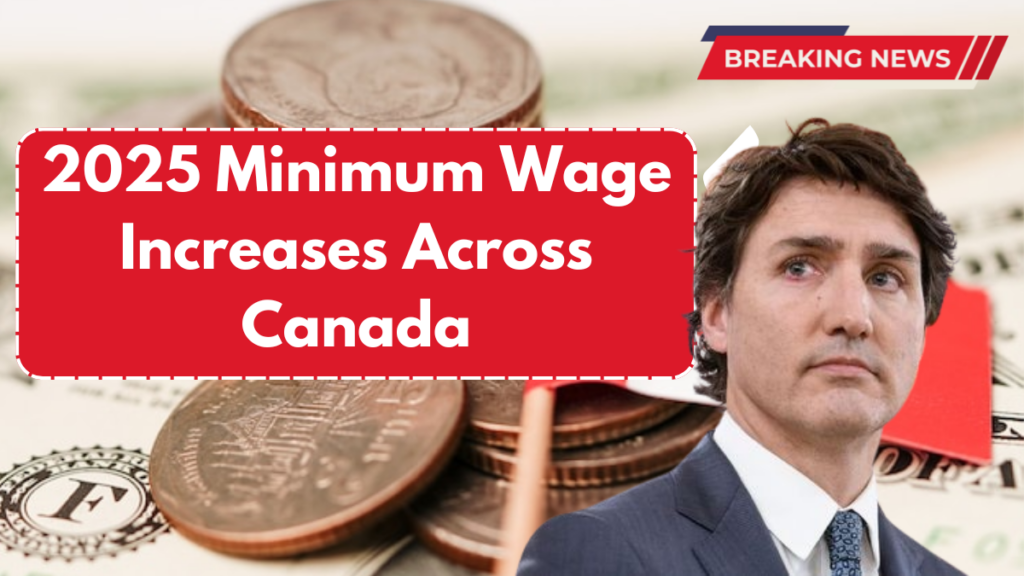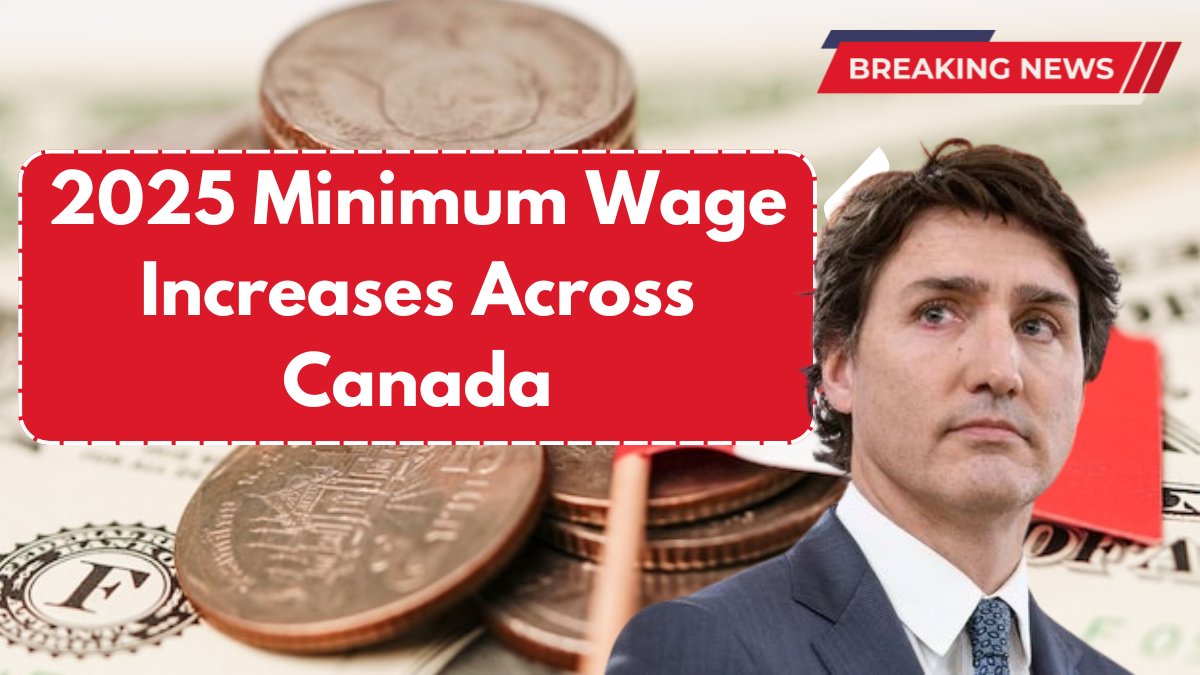As the cost of living continues to rise across Canada, provinces and territories are adjusting their minimum wage rates in 2025. These wage increases aim to help workers keep up with inflation and ensure fair compensation across various industries. This article provides a detailed breakdown of the upcoming changes, when they will take effect, and how they impact employees nationwide.

Updated Minimum Wage Rates Across Canada
Each province and territory in Canada sets its own minimum wage based on economic conditions, inflation, and regional policies. The table below outlines the updated wage rates for 2025:
| Province/Territory | Current Minimum Wage | Expected Increase | Effective Date |
|---|---|---|---|
| New Brunswick | $15.30 | $15.77 | April 1, 2025 |
| Nova Scotia | $15.00 | $15.40 | April 1, 2025 |
| Newfoundland & Labrador | $15.60 | $15.91 | April 1, 2025 |
| Yukon | $17.59 | $17.97 | April 1, 2025 |
| Quebec | $15.75 | TBD | May 1, 2025 |
| British Columbia | $17.40 | TBD | June 1, 2025 |
| Northwest Territories | $16.05 | TBD | September 2025 |
| Ontario | $17.20 | $17.82 | October 1, 2025 |
Understanding Canada’s Minimum Wage System
Minimum wage refers to the lowest hourly pay that employers must provide to workers by law. While the federal government sets a base rate for employees in federally regulated industries, such as banking and postal services, each province and territory establishes its own minimum wage to reflect regional economic conditions.
Minimum wage adjustments are typically linked to the Consumer Price Index (CPI), which measures inflation and changes in the cost of essential goods and services. This system ensures that wages keep up with rising living expenses.
Federal Minimum Wage
For workers in federally regulated industries, the federal minimum wage will rise to $17.30 per hour in 2025. However, most employees in Canada will follow the wage rates set by their province or territory.
Minimum Wage Increases by Province and Territory
New Brunswick
-
Current Rate: $15.30 per hour
-
New Rate: $15.77 per hour
-
Effective Date: April 1, 2025
-
Reason for Increase: New Brunswick’s minimum wage is tied to inflation and is adjusted accordingly each year.
Nova Scotia
-
Current Rate: $15.00 per hour
-
New Rate: $15.40 per hour
-
Effective Date: April 1, 2025
-
Reason for Increase: Nova Scotia follows an annual review system to ensure wages reflect the cost of living.
Newfoundland & Labrador
-
Current Rate: $15.60 per hour
-
New Rate: $15.91 per hour
-
Effective Date: April 1, 2025
-
Reason for Increase: The province is committed to steady wage increases to help workers cope with rising living expenses.
Yukon
-
Current Rate: $17.59 per hour
-
New Rate: $17.97 per hour
-
Effective Date: April 1, 2025
-
Reason for Increase: Yukon has one of the highest minimum wages in Canada, reflecting the territory’s high cost of living.
Quebec
-
Current Rate: $15.75 per hour
-
New Rate: To be determined
-
Effective Date: May 1, 2025
-
Reason for Increase: Quebec’s minimum wage increase will be announced in early 2025. The adjustment will be based on economic conditions.
British Columbia
-
Current Rate: $17.40 per hour
-
New Rate: To be determined
-
Effective Date: June 1, 2025
-
Reason for Increase: British Columbia regularly increases its minimum wage to keep up with inflation and the province’s high cost of living.
Northwest Territories
-
Current Rate: $16.05 per hour
-
New Rate: To be determined
-
Effective Date: September 2025
-
Reason for Increase: The exact wage increase will be determined in mid-2025, with adjustments based on inflation trends.
Ontario
-
Current Rate: $17.20 per hour
-
New Rate: $17.82 per hour
-
Effective Date: October 1, 2025
-
Reason for Increase: Ontario adjusts its minimum wage annually to ensure fair pay and economic stability for workers.
Why These Increases Matter
1. Keeping Up with Inflation
The cost of living has been rising steadily, and these wage increases help workers maintain their purchasing power.
2. Reducing Economic Inequality
Higher wages ensure that workers, especially those in lower-income jobs, earn enough to cover basic expenses like housing, food, and transportation.
3. Supporting Workforce Stability
By raising minimum wages, businesses can attract and retain employees, leading to a more stable workforce.
4. Improving Quality of Life
Higher wages mean workers can afford better living conditions, education, and healthcare, improving overall well-being.
Frequently Asked Questions (FAQs)
1. How often does Canada’s minimum wage change?
Each province and territory reviews minimum wage rates regularly, usually on an annual basis, based on economic conditions and inflation.
2. Will all workers receive the new minimum wage?
Yes, all workers earning minimum wage in their respective provinces or territories will receive the updated rate once it takes effect.
3. How does the federal minimum wage affect workers in different provinces?
The federal minimum wage applies only to employees in federally regulated industries. For all other workers, the provincial or territorial wage is the standard.
4. Can employers pay less than the minimum wage?
No, employers must comply with the legal minimum wage in their province or territory. Failure to do so can result in penalties.
5. How does inflation impact minimum wage increases?
Most provinces link their wage increases to the Consumer Price Index (CPI), ensuring that wages rise in proportion to inflation.
For More Information Click Here
Pari is a passionate writer known for captivating stories that blend imagination and reality. Inspired by travel, history, and everyday moments, Pari crafts narratives that resonate deeply with readers.
